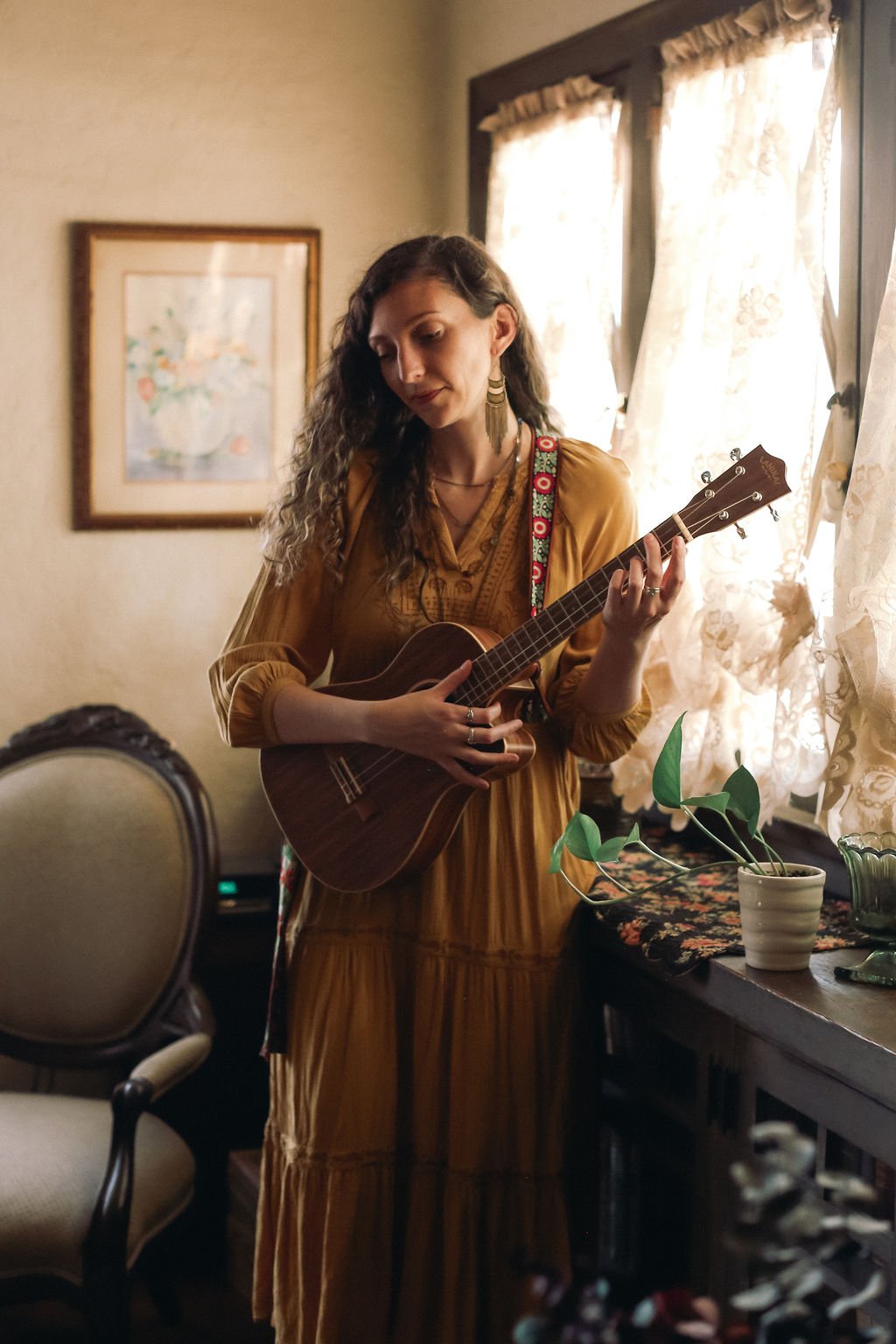February 27th, 2024
Editor’s Note: The ongoing war in Gaza is a source of great pain and incalculable human loss. We at the Catholic Artist Connection recognize that Catholics of good faith may hold diverse and even opposing perspectives regarding this war particularly and many such conflicts worldwide. This reflection articulates one Catholic’s moral reasoning regarding the sanctity of human life and our call to promote peace. It is not the only valid perspective for a faithful Catholic to hold, nor is it the stated position of the Catholic Artist Connection. We encourage all Catholics to reflect seriously on matters of justice and world affairs. Please use grace and discernment in your comments.
To Be Eyelash to Eyelash
Today I released a song called “Eyelash to Eyelash” in memory of my Jewish grandmother Libi who passed away three years ago. In the wake of her loss, I channeled my grief, desolation, and hopelessness into my songwriting. The song’s title comes from the root “cilia” (meaning eyelash) of the word “reconciliation.” To be reconciled is to become so close to someone again that you are eyelash to eyelash with them. I long not only to be eyelash to eyelash with my grandmother, but also with God. Three years later, my opening lyric still rings true for me: “These days it feels like even God is on hold.”
While violence rains down on Gaza, who am I to be safe at a distance? While part of me wonders, “God, where are you? Why do you abandon your people?” I remember that God has given us the gift of free will out of great love, even the freedom to enact violence on others. As my tax dollars go towards billions in military spending, I am complicit in their suffering. I pray for reconciliation and discernment. During this season of Lent, as I remember the loss of my grandmother, my heart has also been broken by the loss and suffering of Palestinian and Israeli civilians, and my grief is bound up with theirs. As Americans watched the Super Bowl, Israeli bombs fell in Rafah, where Palestinian refugees in Gaza were told to go as a “safe zone.” Two Israeli hostages were freed. Over a hundred Palestinians, many of whom were children, were brutally killed. I ask myself, how can violence ever bring peace? And what can I, one person living in the comfort and privilege that I have, do about it?
In today’s readings, Isaiah calls for repentance, and the psalmist and Jesus in Matthew’s Gospel denounce hypocrisy. How might we let Christ’s words throughout the Gospels, which call us to humility, to love our neighbor and to practice nonviolence, sink into our hearts? How can we align the values and teachings of our faith with our actions and move towards being eyelash to eyelash with the poor, oppressed, and marginalized in our communities and around the world?
Lent began on Valentine’s Day and that evening, after receiving ash on our foreheads, my partner and I attended a vigil hosted by Queers for Palestine to mourn, sing, and pray. It was a meaningful way for us to observe a day centered on love, repentance or metanoia, and recalling our mortality. We’ve since made it one of our Lenten practices to attend a weekly local interfaith prayer vigil for Palestine where Christian, Jewish, and Muslim people gather to unite in prayer to the God of all three Abrahamic faiths for peace and liberation. Being in solidarity with others helps us move from isolation into collective action and hope.
My grandma Libi was a poet, activist, comedian and all-around creative woman. Both of us, moved by our respective Jewish and Catholic faiths, felt called to work for justice and peace through our art. In her memory, another Lenten practice for me is making art and rosaries to support oppressed peoples around the world as a form of resistance and solidarity. I continue to pray and ask for her intercession, and I invite the guidance of the Holy Spirit to help me discern what more I can do to deepen my relationship with God and bear the love and peace of Christ in the world.
Jessica Gerhardt is a singer-songwriter and ukuleleist from Santa Monica. She is a board member of the Catholic Artist Connection.


